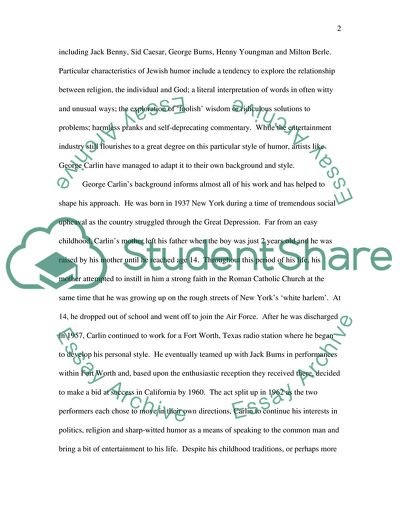Cite this document
(Comedian George Carlin Research Paper Example | Topics and Well Written Essays - 1250 words, n.d.)
Comedian George Carlin Research Paper Example | Topics and Well Written Essays - 1250 words. https://studentshare.org/biographies/1714128-a-research-paper-on-comedian-george-carlin
Comedian George Carlin Research Paper Example | Topics and Well Written Essays - 1250 words. https://studentshare.org/biographies/1714128-a-research-paper-on-comedian-george-carlin
(Comedian George Carlin Research Paper Example | Topics and Well Written Essays - 1250 Words)
Comedian George Carlin Research Paper Example | Topics and Well Written Essays - 1250 Words. https://studentshare.org/biographies/1714128-a-research-paper-on-comedian-george-carlin.
Comedian George Carlin Research Paper Example | Topics and Well Written Essays - 1250 Words. https://studentshare.org/biographies/1714128-a-research-paper-on-comedian-george-carlin.
“Comedian George Carlin Research Paper Example | Topics and Well Written Essays - 1250 Words”. https://studentshare.org/biographies/1714128-a-research-paper-on-comedian-george-carlin.


